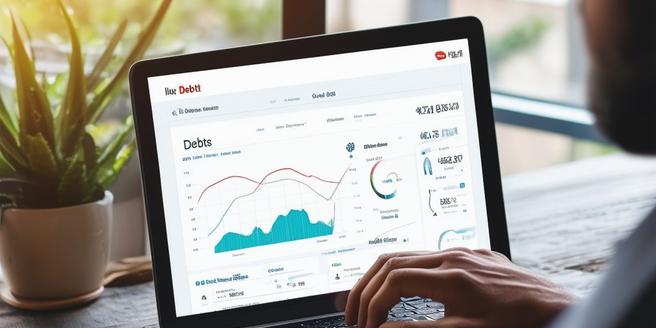Understanding the Root Causes of Credit Card Debt
Credit card debt often stems from a variety of sources. For many, the appeal of immediate gratification can be irresistible, leading to impulsive purchases. Additionally, some individuals face unexpected hardships such as medical emergencies or job loss, which forces them to rely on credit cards as a financial lifeline. High-interest rates can quickly exacerbate the situation, turning manageable debt into an overwhelming burden. Lastly, a lack of financial literacy can prevent people from effectively managing their credit, misunderstanding terms, or ignoring the consequences of minimum-only payments. Recognizing these root causes is essential in addressing and ultimately preventing the cycle of credit card debt.
Assessing Your Current Financial Situation
Understanding your financial standing is a crucial first step in overcoming credit card debt. Begin by listing all your debts, including credit cards, loans, and other liabilities. Detail the interest rates, minimum payments, and due dates associated with each. Next, evaluate your income sources and regular expenses to see where you stand. Creating a budget can help you identify areas where you can cut back or reallocate funds to debt repayment. Moreover, establishing a clear picture of your finances enables you to prioritize which debts to focus on first and create an actionable plan. Remember, taking stock of your situation can provide clarity and motivate change.
Effective Strategies to Pay Down Credit Card Debt
Several strategies can help you effectively reduce credit card debt. The avalanche method involves focusing on the highest-interest debt first, minimizing the interest paid over time. Conversely, the snowball method prioritizes smaller debts, allowing for quick wins that can provide motivational boosts. Consider consolidating debt through balance transfer cards with lower interest rates or personal loans to simplify payments. Automating payments ensures consistency and guards against missed deadlines. Always pay more than the minimum when possible, as this significantly reduces principal quicker. Explore creating a debt repayment plan tailored to your situation and seek advice when needed.
Balancing Debt Repayment with Daily Expenses
Balancing debt repayment while managing daily expenses requires careful planning. Start by distinguishing between essential needs and discretionary spending. Focus on reducing or eliminating non-essential costs, such as dining out or subscriptions. Allocate any savings toward debt repayment. Build a realistic budget that accommodates fixed expenses like rent and utilities while reserving a portion for debt. Setting boundaries for purchases and sticking to a plan is crucial. Utilize tools like budgeting apps to track progress. Maintain a small emergency fund to avoid relying on credit cards for unexpected expenses, which helps stabilize finances without derailing debt repayment efforts.
Building Better Financial Habits for Future Security
Cultivating healthier financial habits ensures long-term security and prevents future debt. Create a habit of tracking expenses regularly to understand spending patterns. Develop a disciplined approach toward budgeting and savings, setting realistic goals for both. Engage in financial education, using resources like books or online courses to improve literacy. Regularly review credit reports to catch errors early and build creditworthiness over time. Establish a habit of living within your means, prioritizing saving over spending. Build an emergency fund to cover unforeseen expenses, preventing reliance on credit cards. Consistently practicing these habits can lead to greater financial stability.
Seeking Professional Help and Resources
When managing credit card debt becomes overwhelming, seeking professional help can be beneficial. Credit counseling services provide personalized advice and can help create a debt management plan tailored to your situation. These professionals can negotiate with creditors to reduce interest rates or waive fees, making repayment more manageable. Consider engaging a financial advisor to gain a comprehensive understanding of your finances and receive strategic guidance. Various non-profit organizations offer free resources, workshops, or support groups that provide valuable insights and encouragement. By leveraging expert assistance, you increase the likelihood of successfully overcoming debt and achieving financial peace.


